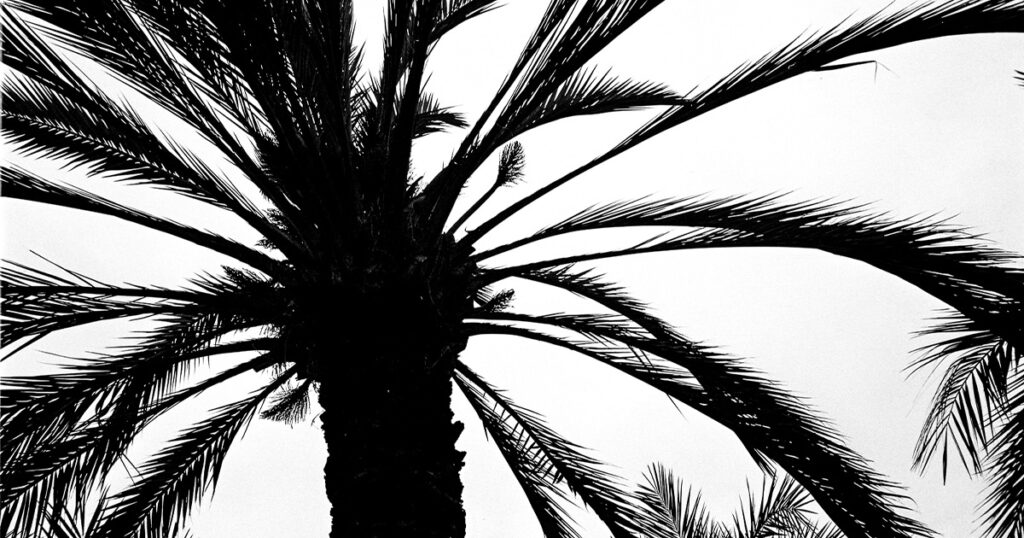
The Burnt Palmyra
They felled the other charred and telltale trunks
turned black from brown and missing their crown of leaves
used to make baskets and hats,
and as paper by the ancient poets
whose works burned, with the library in Jaffna;
those leaves made, too, into umbrellas
which may be why when the shells came down
on these now cratered, lunar badlands
innocents hid beneath my boughs,
hoping bombs might bounce off like rain …
So why is it those who took an axe
to all the other ruined trees that would
remember their crimes to the world
left me and me alone standing,
the voiceless lingam you drive past down
the tank-ruined road to the war museum
with its spalled propeller and piffling,
homemade submarines—arranged
to paint the Tigers as a joke
—where a troop of monkeys with a crash of leaves
leap along rusted, bathetic bulkheads
drooping apart in slices like carved meat?
Hillside temple
Schoolgirls in white blouses and with long, blue-black braids
stream down the road alive,
once, with dappled, leaping deer
—before they were shot by soldiers
like this bloke in his lucent boots
swaggering past the artillery centre
whose mural reads: “when the going gets tough,
the tough get going …” Fancying himself
an action hero walking in slow-motion
away from a coolly disregarded explosion
he leads the eye past the bars that keep
suicidal couples from Lovers’ Leap,
where the sea’s brilliant, soft-hard tremor
flashes a code through the boulder it’s said
Ravana slashed with his sword.
The last train
to arrive in Jaffna
during the war
30 years ago
rusts
on the tracks
the unimaginable
touch of time
has turned it
the colour, exactly
of this land’s ferrous soil
—of blood that is
four men round a fire
purple smoke slants
upward—trunks
form the bier
Leaving Jaffna
everyone prays
at the Murugan kovil. A thumb
paints your brow
with thiruneeru,
vermilion,
sandalwood paste.
Later, you find yourself
sat on a
concrete block
at a table of concrete.
The place war widows run,
depending on no one:
dhal, rice, bangles
of cuttlefish
afloat in bronze
கறி
—wild chicken,
more bone than meat.
Yes,
“it is skill surmounting difficulty, and beauty
triumphing over skill.” The fluent
machete
gleams
into xanthous
exocarp, the blade
corner levering
a divot out—hole
for a straw—suck and suck
then give the king
coconut back: with a stroke
it’s halved,
he hews
of its side a rudimentary
spoon to scrape
out the white flesh with
—shimmering
like uncooked squid.
Eelam
If my parents were, are, nervy,
camouflaged against carnivory;
if, at day’s end, their choice is
a belief in perpetual crisis;
if this autotomy and playing dead
(a jettisoned tail, ink squirted)
is the only language they
felt it safe to bequeath;
then, to smile today
with unclenched teeth,
to sleep well and not brood—an ingrate—
over trivially frictive grit
till the pearl of nightmare is fished;
to be at peace—wouldn’t this
betray my parents and my dead,
discard forever all they did?

